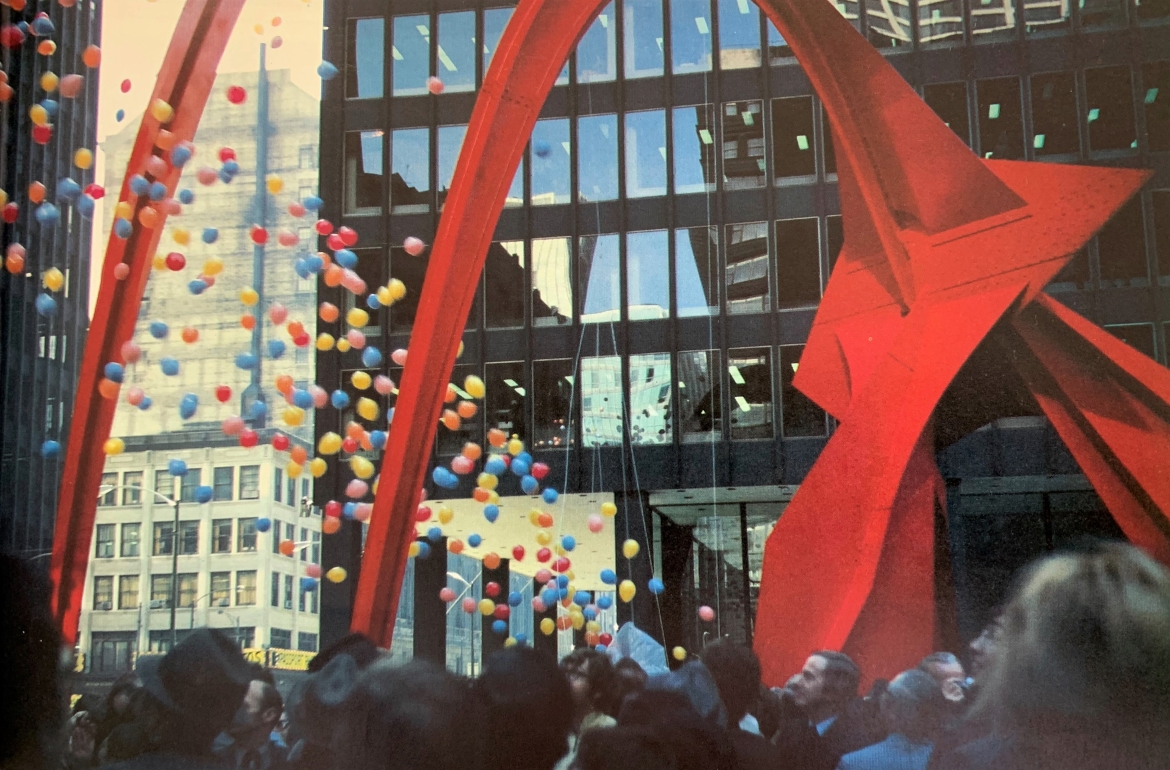
GSA Celebrates 50 Years of Art in Architecture
Post filed in: Art in Architecture
This October marks the 50th Anniversary of GSA’s Art in Architecture (AiA) program. In 1972, President Nixon issued a directive renewing and expanding the 1962 Guiding Principles for Federal Architecture, which recommended that new federal buildings include artworks. Since then, the AiA program has commissioned more than 500 artworks that are permanently installed in buildings across the country.
These artworks highlight the importance of federal architecture and showcase the vibrancy of American visual arts. Together, the art and architecture of federal buildings create a lasting cultural legacy for the people of the United States.
History
From its beginning, the AiA program has not endorsed an official style of art, any particular medium, or content. Instead, AiA has commissioned artists to create work that shows current artistic practices, responds to the building’s site and design, and reflects the diversity and richness of the nation’s many artist communities.
The artworks mirror the creative talents and voices of each generation’s artists. The collection is a valuable time capsule that reflects the changes of the last 50 years.
Commission Process
AiA commissions are tied to congressionally authorized capital-construction projects. In an average year, that typically means five new AiA commissions.
The Bipartisan Infrastructure Law, which is funding the construction of 26 land port of entry (LPOE) projects (border stations), dramatically increases the number of GSA art commissions. In support of this effort, starting this fall, we will convene a number of AiA panels. We’ll be very busy over the next few years with the regular courthouse and federal building construction projects plus the LPOE projects. We’re looking forward to finding and including more artists and adding to our collection.
In the spring, GSA and the National Endowment for the Arts signed a memorandum of understanding to work together to increase awareness of the AiA program and promote these opportunities to artists from the nation’s diverse communities.
Both of us share a commitment to diversity, inclusion, and access to the arts for the American public. We’re both looking for new ways to support artists. We recently completed a series of four webinars that focused on AiA, the new LPOE projects, and how artists can be considered for upcoming commissions.
Every AiA project relies on a panel. Panels include
- The lead designer of the building project
- A client agency representative
- A community representative
- An art professional based in the project city or region
- Another art professional based elsewhere in the country
- GSA staff
Each panel member brings a different perspective and knowledge base to the process. The panelists learn about the building design, the agency that will occupy the building, and the community’s concerns and preferences. They consider how to incorporate art into the project, recommend artists for evaluation and review the selected artist’s proposal.
National Artist Registry
Want to be considered for upcoming AiA commissions? Join the GSA National Artist Registry.
Any artist who is a citizen or lawful permanent resident of the United States is eligible for a commission. Artists can submit their portfolios for a specific project or join the National Artist Registry to be considered for all upcoming projects.
Once in the registry, an artist can be considered for all AiA commissions. Artists can update their materials at any time. If an artist is a finalist for a commission, AiA staff will contact them to request some more information.
We have more than a dozen AiA projects already underway, in addition to the 26 new LPOE projects starting soon. During this summer and fall, we’ve installed several newly completed artworks, including those by Nick Cave in Detroit, Michigan, and Monique van Genderen in Harrisburg, Pennsylvania.
50 years ago, we lived in a very different world—no personal computers or cell phones, for example. We’d like to know what the next 50 years will bring. But one thing we do know: artists will continue to be part of a federal art tradition.
You can view more works and find the application form on GSA’s AiA website.

 U.S. General Services Administration
U.S. General Services Administration
